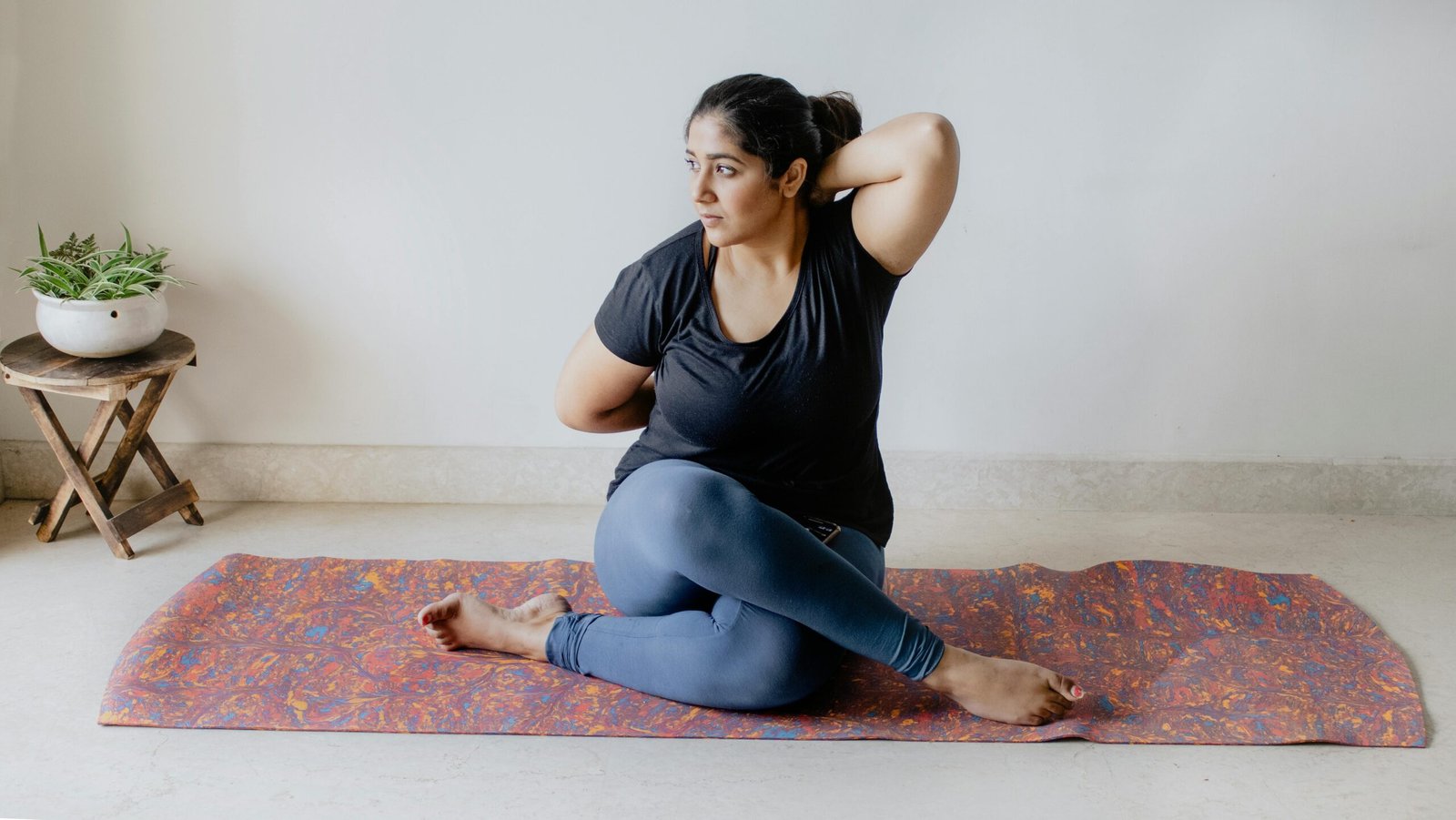
How Yoga Can Help with Any Problem You’re Facing
No matter what challenge life throws your way — stress, back pain, insomnia, anxiety, or even burnout — yoga has a way of helping you find balance again. It’s not just about flexibility or fitness; yoga is a holistic science that connects your body, mind, and emotions, helping you cope with any situation from a place of calm and clarity.
As the World Health Organization (WHO) emphasizes, mental and physical well-being are deeply connected — and yoga addresses both through breath, movement, and awareness. (WHO Mental Health Report 2022)
1. Yoga for Stress & Anxiety
In today’s fast-paced world, stress is unavoidable — but suffering isn’t. Yoga helps by calming the nervous system through deep breathing (pranayama) and mindful movement. Studies by Harvard Medical School show that yoga activates the parasympathetic nervous system — reducing cortisol (the stress hormone) and promoting a feeling of peace and groundedness.
Even 10 minutes of slow stretches or guided meditation can shift your mood and lower anxiety levels dramatically.
🧘♀️ Tip: Try “alternate nostril breathing” for instant calm.
2. Yoga for Physical Pain & Posture Issues
Whether you sit at a desk all day or stand for long hours, poor posture leads to back pain, neck stiffness, or headaches. Yoga strengthens your core and spine alignment, improving mobility and releasing muscular tension.
As noted by the U.S. National Center for Complementary and Integrative Health (NCCIH), yoga has been clinically proven to reduce chronic lower back pain and improve quality of life. (NCCIH Report, 2023)
🧘♀️ Tip: Practice gentle spinal twists and cat-cow stretches daily to keep your spine healthy and flexible.
3. Yoga for Emotional Balance
Emotions often manifest physically — anxiety tightens the chest, sadness slumps the shoulders, anger stiffens the jaw. Yoga bridges body and mind, allowing emotional release through mindful movement and breath.
When practiced regularly, yoga increases serotonin and endorphin levels, helping combat mood swings and depression. Many practitioners describe it as “therapy without words.”
🧘♀️ Tip: Combine slow restorative poses with gratitude journaling after your practice for emotional clarity.
4. Yoga for Better Sleep & Energy
If your mind races at night, yoga can help you unwind. Gentle bedtime stretches, combined with slow breathing, trigger the body’s relaxation response. Research published in the Journal of Clinical Sleep Medicine found that people who practiced yoga before bed fell asleep faster and slept more deeply.
Morning yoga, on the other hand, improves circulation, oxygen flow, and focus — making it the perfect replacement for your morning coffee.
🧘♀️ Tip: Try “legs up the wall” pose for 5 minutes before bed for deep relaxation.
5. Yoga for Focus & Productivity
Yoga enhances your ability to concentrate by training the mind to stay present. It teaches you how to manage distractions — a skill essential in both work and life.
Meditative practices like Trataka (candle gazing) or mindful breathing improve cognitive function and memory retention, as supported by a 2023 study in Frontiers in Psychology.
🧘♀️ Tip: Begin your day with a 5-minute breathing session before checking your phone — it sets the tone for a focused, mindful day.
6. Yoga for Healing & Resilience
Whether you’re healing from illness, heartbreak, or burnout — yoga helps rebuild strength and trust in your body. It shifts your energy from “fight or flight” to “rest and repair,” enhancing recovery at every level.
As Swati Singh emphasizes in her private sessions, yoga is not about escaping pain but transforming your relationship with it. Through movement and breath, you learn to meet discomfort with compassion and awareness.
🧘♀️ Tip: Practice slow sun salutations with intention — they reconnect your body, breath, and emotions into harmony.
Final Thoughts
The beauty of yoga lies in its universality — it doesn’t matter your age, background, or problem. Whether it’s a stiff back or a heavy heart, yoga meets you where you are and gently guides you toward balance.
As Swati Singh says, “Yoga won’t remove your problems — it changes how you face them.”
When practiced consistently, yoga gives you the tools to stay centered, peaceful, and strong — no matter what life brings your way.
FAQs
Q1: Can yoga really help with emotional problems like anxiety or grief?
Yes. Yoga and meditation are proven to regulate emotions, reduce stress hormones, and increase feelings of peace.
Q2: I have health issues. Can I still do yoga?
Absolutely. A personal yoga teacher like Swati Singh customizes sessions based on your condition, ensuring a safe and supportive practice.
Q3: How long before I see results?
You may notice subtle changes — like better sleep or mood — within 2–3 weeks. Deeper transformation comes with consistent practice.
Q4: Do I need special equipment?
No. A yoga mat and comfortable space are enough to begin.

